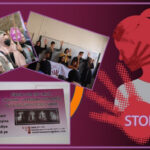
The Sara Organization for the Fight Against Violence Against Women has reported 388 incidents of violence, human rights violations and crimes against women in the last 10 months in Northern and Eastern Syria.
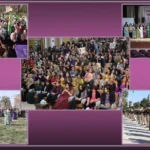
Kurdish, Arab, Syriac, Assyrian, Armenian, and Turkmen women have achieved numerous legal, political, military, cultural, and social accomplishments in North and East Syria during the July 19 Revolution (Women's Revolution). Preparations are currently underway to draft a special social contract for women.
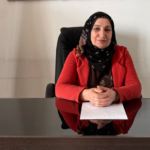
Today is the International Day for the Elimination of Violence Against Women. RIC interviewed Arzo Tammo, the coordinator of Sara’s Qamishlo center. Sara is an organization specifically created to address violence against women, such as combating kidnapping and underage marriage.
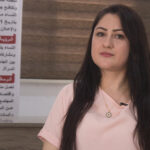
The Sara Organization to Combat Violence against Women organizes awareness-raising activities to create a society without violence.
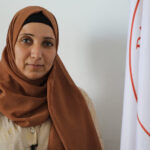
The ‘We Are Hope, We Are Peace’ campaign carried out in Northern and Eastern Syria aims to explain the content of the Family Law as well as end violence against women and raise awareness among men.
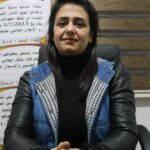
Sara Women’s Organization, which carried out many actions, events, campaigns, protests, and followed many violence trials to combat gender-based violence in 2021, will open new branches in 2022.
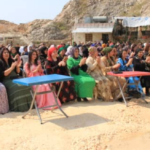
A novel Middle East Women Leaders Index, published by the Middle East Women Initiative, ranked Syria relatively low in women’s representation and leadership in the public sector. The data used (primarily from the World bank and UNDP) for the index covered the status of women in the Syrian government and areas it controls. However, the situation in Syria today is far more complex, almost ten years into the conflict.
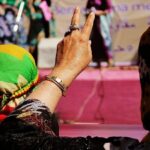
Kongra Star, which means “Star Congress” (in reference to the ancient Mesopotamian goddess, Ishtar), is the congress of the women’s movement in North and East Syria. It was first established in 2004 as Yêkitiya Star (Star Union), an underground organization that sought to organize women at a time of Ba’ath regime dominance over the area. Kongra Star operates on the basis of confederalism, with organizations, committees, and unions participating. Its vision is “to develop a free Rojava, a democratic Syria, and a democratic Middle East by promoting women’s freedom and the concept of the democratic nation.” In many ways it acts as the corresponding autonomous women’s body to TEV-DEM (Movement for a Democratic Society, the umbrella body for civil society).
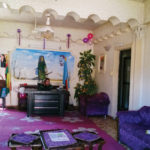
Behind the frontlines in Syria, a self-governing Kurdish region is making a radical attempt at gender equality. The brutal recapture of Aleppo by Syrian government forces and its allies at the end of 2016 does not bode well for another enclave of resistance: the predominantly Kurdish area in northern Syria. Here, in a long strip









